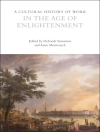Women and the Land examines English women’s legal rights to land and the reality and consequences of their land ownership over four centuries.
Women and the Land examines the pre-history of gendered property relations in England, focusing on the four-hundred-year period between roughly 1500 and 1900. More specifically, the book is about how gender shaped opportunities for and experiences of owning property, particularly for women. The focus is especially on land, residential buildings and commercial property, but livestock, common and personal property also feature. This project is drivenby an explicitly feminist agenda: the contributors directly challenge the idea that the existence of patriarchal property relations — including the doctrine of coverture and gendered inheritance practices — meant that property wasconcentrated in exclusively male hands. Here a very different story is told: of significant levels of female landownership and how women’s desire to own property and manage its profits led to emotional attachments to land and a willingness and determination to fight for the right to legal title. Altogether, the chapters in this volume offer new histories of land and property which hold women’s lives as their centre. Presenting the very latest qualitativeand quantitative research on women’s landownership, the book will be of interest to those working in social, economic and cultural history, historical and cultural geography, women’s studies, gender studies and landscape studies.
AMANDA CAPERN is Senior Lecturer in Early Modern Women’s History at the University of Hull.
BRIONY MCDONAGH is Senior Lecturer in Historical and Cultural Geography at the University of Hull.
JENNIFER ASTON is Senior Lecturer in Modern British History at Northumbria University.
CONTRIBUTORS: Jennifer Aston, Stephen Bending, Amanda L. Capern, Janet Casson, Amy Erickson, Amanda Flather, Joan Heggie, Jessica L. Malay, Briony Mc Donagh, Judith Spicksley, Jon Stobart, Hannah Worthen
Содержание
Introduction: Women, Property and Land — Briony Mc Donagh and Amanda L. Capern and Jennifer Aston
Women, Work and Land: The Spatial Dynamics of Gender Relations in Early Modern England 1550-1750 — Amanda J. Flather
Spinsters with Land in Early Modern England: Inheritance, Possession and Use — Judith Spicksley
Becoming Anne Clifford — Judith L. Malay
The Heiress Reconsidered: Contexts for Understanding the Abduction of Arabella Alleyn — Amanda L. Capern
From Magnificent Houses to Disagreeable Country: Lady Sophia Newdigate’s Tour of Southern England and Derbyshire, 1748 — Jon Stobart
On Being ‘fully and completely mistress of the whole business’: Gender, Land and Estate Accounting in Georgian England — Briony Mc Donagh
Negotiating Men: Elizabeth Montagu, ‘Capability’ Brown, and the Construction of Pastoral — Stephen Bending
Women’s Involvement in Property in the North Riding of Yorkshire in the Eighteenth and Nineteenth Centuries — Joan Heggie
Invisible Women: Small-scale Landed Proprietors in Nineteenth Century England — Janet Casson
More than just a Caretaker: Women’s Role in the Intergenerational Transfer of Real and Personal Property in Nineteenth-Century Urban England, 1840-1900 — Jennifer Aston
Afterword — Amy Erickson
Select Bibliography












